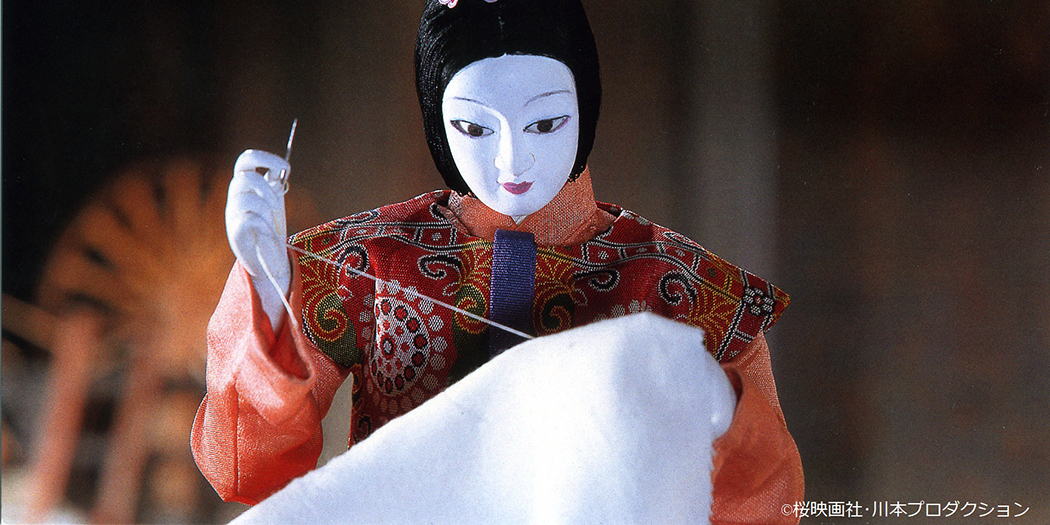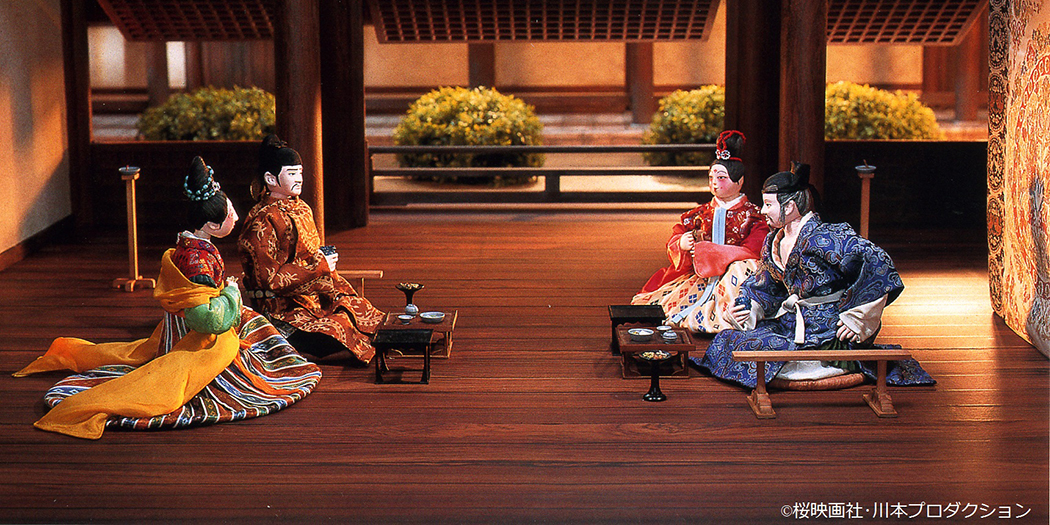
Japan, 2005, 70’
Regia / Direction: Kihachiro Kawamoto
Sceneggiatura / Screenplay: Shinobu Origuchi
Produttore / Producer:
Interpreti / Cast: Kyôko Kishida, Tetsuko Kuroyanagi, Rie Miyazawa
Fotografia / Cinematography: Minoru Tamura, Kunihiko Itami
Musica / Music: Ryohei Hirose
Scenografia / Set Designer: n.d.
Montaggio / Editor: Kihachiro Kawamoto
Produzione / Producer Company: Sakura Motion Picture, Co., Ltd.
Distribuzione / Distributor: Kinokuniya
Contatti: n.d.
Premi / Awards: Premio di eccellenza per film d’animazione - Japan Media Arts Festival 2005, Gran Premio per miglior film - China International Cartoon and Digital Art Festival 2006, Miglior cortometraggio d’animazione e menzione speciale - Sitges. Catalonian International Film Festival 2006
"The Book of the Dead" is set in the Japanese Nara period (from 710 to 784), a period during which Buddhism was introduced in Japan from China. Iratsume is a young woman from a noble family who becomes obsessed with this new religion and spends her time manually transcribing the sutras, or the teachings of Buddha, trying to understand its meaning. On the eve of every equinox and solstice, Iratsume sees a radiant figure, similar to Buddha, levitate among the twin peaks of distant Mount Futakami. One evening, after completing one of her thousandth transcripts of a sutra, she sees that the luminous figure that had waited so long is obscured by a rainstorm. Iratsume runs away from home and reaches the foot of the mountain, where he finds a temple to which, however, women are forbidden to enter. At that moment she comes to the conclusion that this radiant figure is not a Buddha, but the soul of Prince Ōtsu, who had been executed, who wanders tormented between the earthly world and those of the dead. When the soul of Iratsume and Ōtsu meet, both feel united and united. Thus a bond is established between them that leads to both harmony; this bond will ensure that the soul of the prince can rest in peace. The film, in line with the Japanese Buddhist teachings, maintains that the souls of all living beings should find relief in the afterlife. In fact, Kawamoto will dedicate the film to the innocent souls who died during the wars of contemporary history.
"The Short Films of Kihachiro Kawamoto" a selection of four of the first short films created by the Japanese animation master. Breaking of Branches is Forbidden (1968) a story with a moral. The demon (1972) the story of two brothers and their meeting with a demon in the forest. Dōjōji Temple (1976) is the story of a pilgrim and a fleeting love. House of Flame (1979) a supernatural and fantastic story.


Kihachiro Kawamoto is an independent director, screenwriter, puppet designer and Japanese animator born in 1925 and died in 2010.
He started making dolls and puppets from an early age and, following the vision of Jiří Trnka's works, he became interested in stop motion animation. In this way he started working in the 50s with the first animators of Japanese puppets, including the well-known Tadahito Mochinaga.
In 1958, Kawamoto co-founded Shiba Productions, which mainly deals with animated television commercials.
In 1963, he went a year to Prague to study the animation of the Trnka puppets.
Trnka will push him to focus on the rich cultural heritage of Japan of the past.
So it was that Kawamoto decided to return to Japan to make his own series of independent artistic shorts.
The first short of Kawamoto dates back to 1968 and bears the title of "Hana-Ori", in English "Breaking of Branches is Forbidden".
In the '70s Kawamoto's works are strongly influenced by the aesthetics of Nō, the style of the puppets of the Banku and the kabuki.
Kawamoto creates such works as "Oni" ("The Demon", 1972), Dōjōji ("Dōjōji Temple" 1976) and "Kataku" ("House of Flame", 1979), which win numerous international awards.
Kawamoto has also made short films using the cut-out animation technique, in Japanese called krigami; among these we find "Tabi" (1973) and "Shijn no Shogai" of 1974.
In 1990 he returned to Trnka's studio in Prague to create "Briar Rose or the Sleeping Beauty".
In 2003, he is responsible for the supervision of "Fuyu no Hi", or "Winter Days".
In 2005 he made "Shisha no Sho", "The Book of the Dead", which is his only feature film.